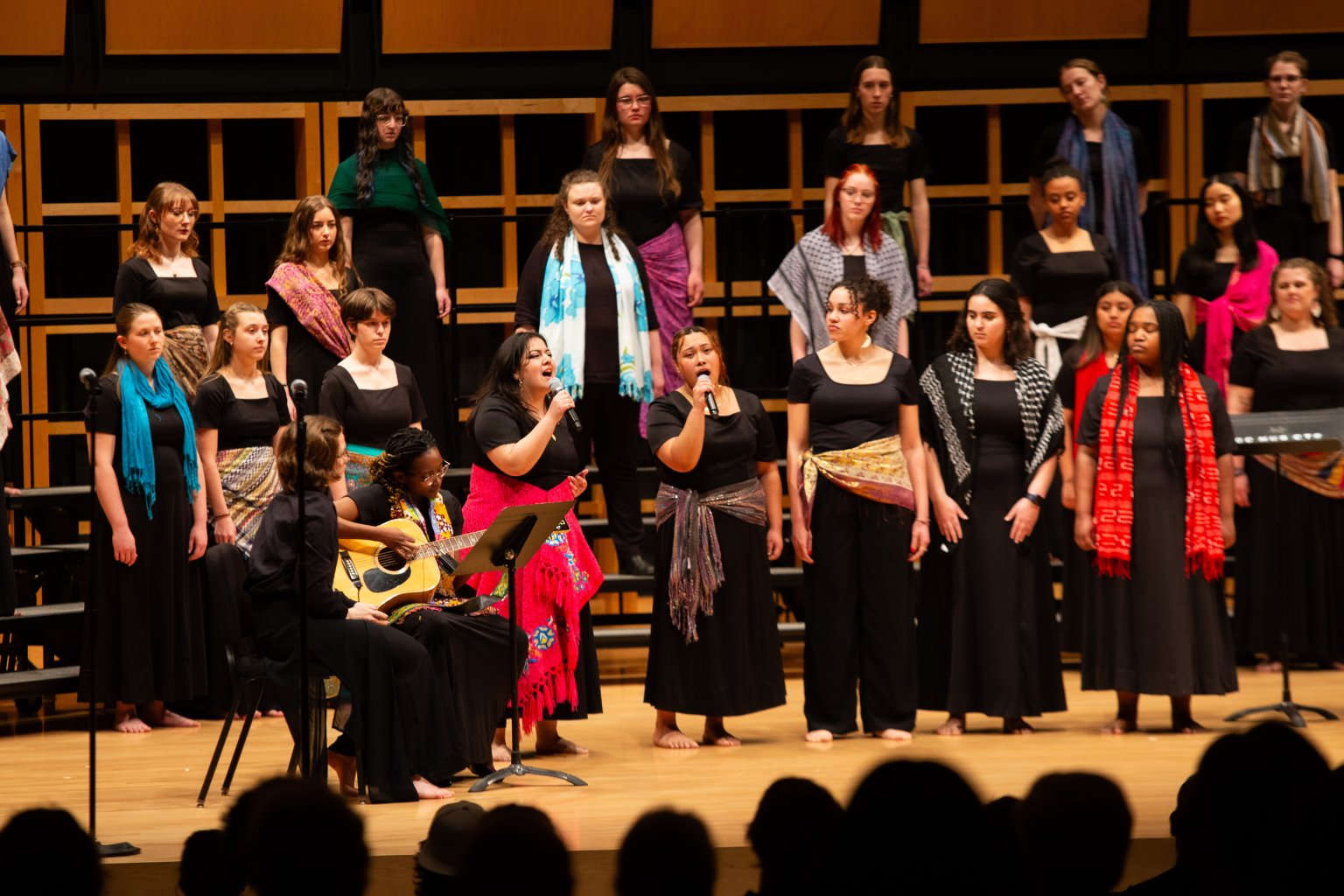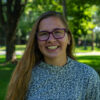The feminine experience is something that cannot be summed up in words, or confined to general concepts. The feminine experience is a human life lived, in all its different cultures, contexts and colors: an identity that is made by the individual who lives it.
This is a subject that the Queen Singers of Goshen College, a group made up of BIPOC women singers, have discussed. How do they want to convey the feminine experience? It may be through songs of empowerment like Alicia Keys’ “Girl is Fire,” or through songs about heartbreak and vulnerability like Yebba’s “Evergreen.”
In these interview excerpts, the Queen Singers express the importance of lifting up BIPOC feminine experiences, what they aim to embody with their music, and what it personally means to be a woman and “that girl.”
Eliza Alemán, sophomore:
“Performing and singing caters to a completely new audience as compared to doing work in the humanities or sciences … we can reach a different audience of BIPOC women that also need to be heard and feel represented.”
“In empowering women, a lot of times it comes off as [a message of] ‘it has to be strong, and it has to be assertive, and it has to be aggressive’ and so on and so forth, but in embodying the feminine experience, I don’t think there’s anything wrong in doing things gracefully and delicately. I think that has just as much power.”
“We are putting ourselves on stage, and that is vulnerable in it of itself.”
Mairin Mendoza, sophomore:
“I feel like we show resilience, strength, power, which is kind of the theme behind our songs.”
Jakyra Green, senior:
“Singing about the feminine experience is liberating. We have an emotional outlet where I’m able to express my feelings from joy to struggles.”
“Being a woman means many different things, but my identity as a Black woman takes precedence. I like to think I am a working product of other amazing Black women around me. I’m in such awe of them — their resilience, empathy and ability to show grace to people who probably don’t deserve it, among other traits, are admirable.”
“We recognize that our identities are unique and we may never fully understand our respective lived experiences. We also recognize our similarities as women and women of color. This unity and solidarity is powerful, because we understand that our differences do not have to polarize us.”
Fatima Zahara, junior:
“Growing up with brothers, and also with a white mom and an African father, it’s sort of hard to contend with both of those parts of my identity because I’ve never really identified with either of them … I think [Queen Singers is] important for me because it helps me understand myself better and understand my relationship to others.”
“I feel like being a woman is more about your spirit … I’m convinced that God is a woman, you know what I mean? No way she isn’t. You’re literally the maker of everyone. I can make a human with my bones. I can give birth. I’m that girl because girls are that girl. Women are that girl.
Aysia Adkins, sophomore:
“We think the idea of having a yearly Queen Singers convo would be really powerful and empowering for people to be a part of and see.”
“[The Queen Singers embody] power and privilege, because we’re given a space at Goshen College to use our voices and make ourselves heard, while we show our talents and what people like us are capable of.”
“Growing into my confidence throughout the years has made me a woman. Because, you have to create that space for yourself as a woman, and women have created a space for each other to be ourselves and find comfort in the support from each other. It’s nice to be able to be who I am without thinking as heavily as I used to about being judged or what other people thought of me.”
Bongiwe Ncube, senior:
“The BIPOC feminine experience is quite diverse. And so, even though I identify as a BIPOC female, that doesn’t necessarily mean that I understand, or have experienced what other people have gone through as BIPOC females. [Singing in the group is] informative, and therefore, I try to take the stance of a continuous learner.”
“[Being a part of the Queen Singers] has been a life-changing experience in that it has altered my college paradigm. I have found companions. That was not the case in the first two years of college: I found myself in classrooms with people who did not identify as Black and female at the same time for the most part. It’s been wonderful to find other BIPOC females on campus whom I can relate to, whom I can form tight bonds with, and for that, I’m very grateful.”
H. Roz Woll, director:
“I feel like we’re missing out if we’re not hearing from diverse voices, and I think left to our own devices, those voices get shuffled to the side. And so, there needs to be intentionality about drawing in voices and upsetting the dominant framework.”
“With regard to this group, I was wanting to not have the idea of ‘woman’ be bound by any particular, outdated, framework — everybody’s an individual and not … bound by a societal expectation.”
The Queen Singers will perform at the International Student Club Coffee House show on Saturday.




